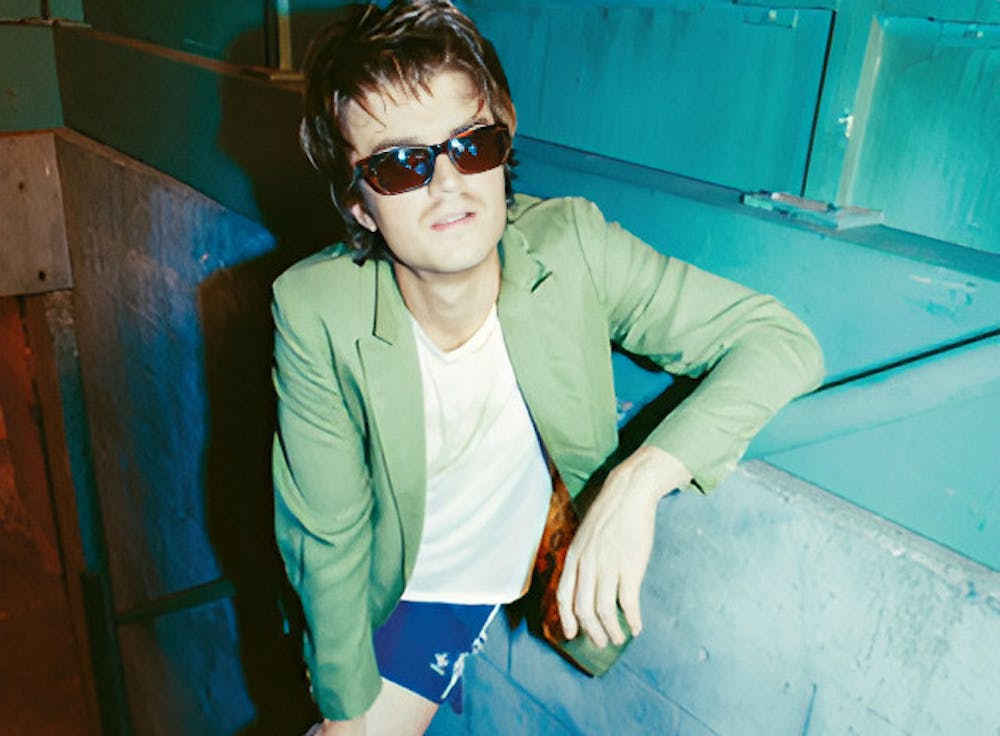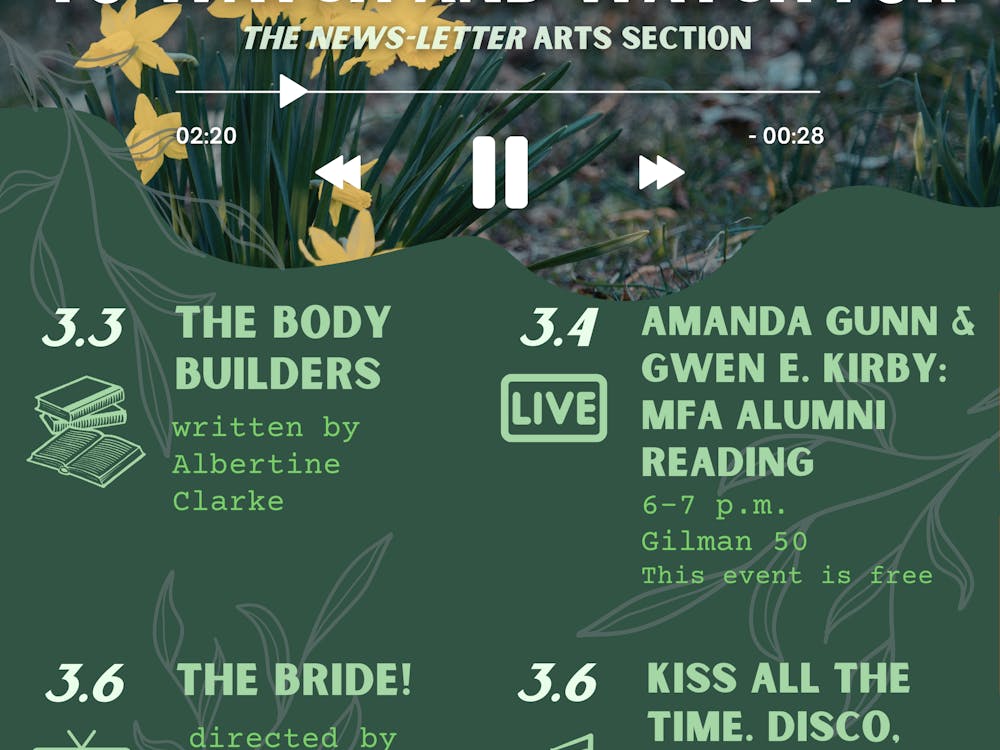On April 4, Djo (also known as actor Joe Keery) released his highly-anticipated third album The Crux. Produced in collaboration with Adam Thein, the album blends styles from a wide range of alternative artists.
Listening to The Crux for the first time felt like a scramble to identify its influences. On “Basic Being Basic,” you can hear the bouncy synth-pop of Julian Casablancas; on “Gap Tooth Smile,” the processed gravelly vocals of Cake or the Gorillaz; on “Link,” the breathy staccato bridges of The Strokes; on “Fly,” the buoyant sweetness of Clairo’s most recent album Charm. You don’t have to be a music nerd to recognize the sound of Paul McCartney on “Charlie’s Garden” or to piece together the title’s nod to the Beatles’ “Octopus’s Garden.” Fans of Djo have named dozens more influences, from Wilco to LCD Soundsystem to Led Zeppelin.
Some people found this mashup of influences to be uninspired, if not damaging to the integrity of the album. In a Pitchfork review, Ian Cohen calls The Crux “a frictionless blend of styles that feels a bit uncanny, like music you could imagine in a faux Urban Outfitters at Starcourt Mall.” He goes on to indict the lyrics for being essentially meaningless, gesturing at some greater message without ever reaching it. According to Cohen, the most interesting part of the album is that Keery — the guy from Stranger Things — created it.
If Cohen’s critique comes across as harsh, it does reveal a raw nerve in today’s music scene — that is, the fear of unoriginality. With artificial intelligence (AI) models getting better and better at mimicking human art with each passing day, it matters a lot when human artists use recycled material. If your music can only rework older samples without creating anything new, you risk doing the very thing that we fear AI models are doing.
It makes sense, then, that Cohen would appeal to the human personality behind the album. By picturing Steve Harrington fighting Demogorgons, we stop feeling like we’re on the receiving end of a creativity crisis.
But The Crux’s musical pastiche does much more than ChatGPT could, and we can hear it on the tracks themselves. When Djo pushes his voice into Talking Heads-esque bursts on “Egg” or introduces “Delete Ya” in classic TV Girl fashion, he is not just copy-pasting older formulas. Instead, he is pulling from the past to reinvigorate the current music scene and speak to modern-day issues. It’s like what people do when they wear a sweater from the eighties: bring back the older spunk to liven up today.
Perhaps the best example of this retrospective technique happens on the track “Lonesome Is A State of Mind.” With all the muted whimsy of 2010s alt-rock icon Cage the Elephant, this song opens on a quiet verse before breaking into a cathartic chorus. The synth keyboard at the beginning sounds so similar to the one in “Telescope” that it merits a double-take, and the staticky vocals only drive home the effect. The chorus shouts out in the same way that Cage the Elephant does on “Cigarette Daydreams,” or Dr. Dog on “Where’d All the Time Go?” The line “turns a scar to a seam” is spoken in a way that recalls other indie favorites such as Foxygen, and the bridge sounds like it is paying homage to MGMT.
It’s clear that Djo is pulling from the canon of alternative music, but the lyrics are doing something new. Even as the verses describe déjà vu — “I swear I’ve had this dinner before / I know I’ve heard that song” — the chorus centers on the decidedly contemporary theme of learning to enjoy your own company. As Djo splits up the “two for life” referenced in the chorus, singing variously, “it’s one on one,” “I’m one” and “I’m done,” it becomes clear that this is a breakup song. Yet the lyrics land on this conclusion: “No, you’re not lonely when you’re hangin’ with yourself.” In a culture that increasingly values alone time, this song proves to be part of the zeitgeist. By grafting in the sounds of 2010s indie icons, Djo replenishes the material we can use to think about ourselves.
“Basic Being Basic,” the pre-released track that has so far been the most popular on the album, uses the same trick. Though the instrumentals mimic LCD Soundsystem and the vocals echo Gorillaz, the lyrics speak to a conundrum that has become widespread only in the last few years. By being “scared of being basic,” Djo suggests we actually make ourselves even more “basic.” The ways we often choose to express ourselves have become contradictory and empty, he seems to imply, singing, “Change your body, change your face / Curl your hair, then make it straight / Take a picture of your plate, Tarantino movie taste.” If the formula for self-expression has become tired, then so has the current moment — which is why Djo gives bouncy sounds from the past to spice things up.
Even the Beatles-impersonating “Charlie’s Garden” has its connections to the current moment. Although Djo sings in McCartney’s voice, his words refer to the listlessness of a day that is meant to be productive. Having woken up and downed a cup of coffee, the track’s narrator continues: “That work just won’t do itself / That can wait another day.” Next thing we know, a voice-memo-style segment plays, and a speaker cancels a meeting on him. Both procrastination and misscheduling plague the average person today, though I’ll bet you haven’t heard them sung about in Beatles-style.
In a dazzling array of borrowed styles and poignant lyrics, Djo’s The Crux is for those of us who are both nostalgic and preoccupied with contemporary issues. For free refills on your cup of current considerations, look no further than The Crux.





